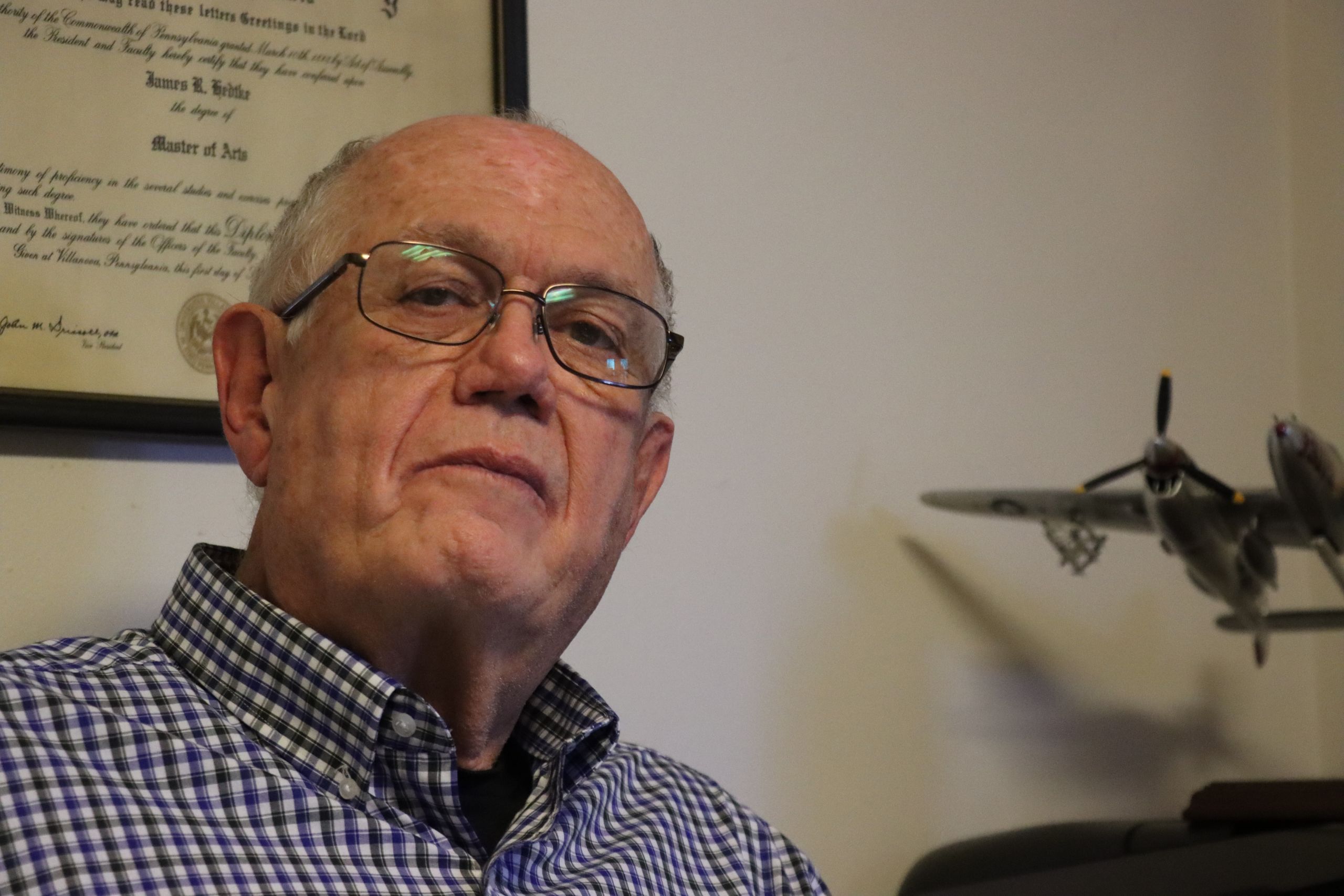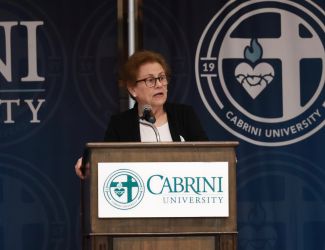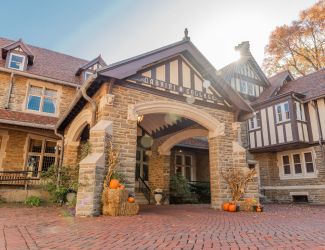On June 23, when Cabrini announced its closure through email, professor and chair of history and political science Dr. James Hedtke thought it was “like being at a wake or watching someone on hospice die.” As a professor with longtime tenure, the school’s closing hit him and others particularly hard.
Initial reaction
When hearing the news of Cabrini’s closure, professor and chair of chemistry Dr. Melinda Harrison said it had a “deep impact,” on her which she hasn’t fully processed yet.
She said, “There’s a few of us here, a core group of faculty, that have been here as long as I have been, and some that have been here even longer. And we’re really close, and we’re all kind of in this together.” Harrison has taught at Cabrini since 2008.
She said that professors, including those with tenure, will have to start making “decisions” to put themselves “back out there,” even if they don’t want to.
Hedtke, a professor who joined the history and political science department in 1973, found himself in a similar boat.
Hedtke said, “I’m heartbroken that the institution is closing. I’ve been here for 50 years, it’s been a major part of my life. Next to my family and some of my friends from college, this is the longest relationship I’ve ever had with another set of people and individuals.”
“Tenure’s based on three things: it’s your teaching, it’s your research, and it’s your service to the college community. So, as faculty move on, they’ll have to figure out what the institution puts its emphasis on,” said Hedtke.
Future plans
After the news of closure, Harrison found herself in limbo between two options. Either teach at a different school or continue her research elsewhere.
Harrison said, “Currently, I do not know where I’m going to be going next. I’m not even sure if I’m going to stay in academics.”
She said if she chooses to stay in education, she wants to find a school that has their “service initiative in the forefront of their mission,” like Cabrini, where a school emphasizes teacher’s relationships with students. If she chooses a path away from teaching, she hopes to work for the government, a pharmaceutical company, or a private lab.
“I’m going on 75, nobody’s gonna have me. I’m just too old, they might want me as an adjunct coming to teach some specialty courses, or one course here and there, but nobody wants to bring on a guy who’s 75 years old; he’s been there, done that, through.”
Jim Hedtke
Hedtke said he plans to continue his research through the various projects he’s working on. One of these “irons in the fire” is a book he aspires to publish, “The War Time Letters of Brad McMannis.”
The impact of tenure
During their time with the institution, tenure has had a positive effect on their teachings.
Hedtke said, “Tenure has impacted my career and academic pursuits, because it affords you academic freedom. You can teach topics that are controversial, that are uncomfortable, and that’s where students learn.”
He added, “Tenure’s like a marriage, you’re making a lifetime commitment to the institution, and the institution is making a lifetime commitment to the faculty member. It’s a trust relationship.”
Harrison recalls a moment of this special privilege of tenure when she was able to incorporate several service-learning projects into her upper-level chemistry courses.
The happy legacy
Harrison said the students she met, some of whom she still speaks with, are doing great things as alumni.
She said, “I have an alumnus that are working for the government, I have alumni that are fellow faculty members, now we have alumni working for pharmaceutical companies, we have alumni educating people in secondary classrooms, so to see what my former students are doing is amazing.”
Similarly, Hedtke said, “I think as I look back, I’ll remember all the great times I’ve had at this institution, all the good people that I’ve met here and shared my life with, and most of all the students. They’ve always been a great comfort and source of joy for me, especially when my students surpass me academically.”
He called this the “happy legacy” and something he’d prefer to focus on “rather than an institution folding and not being here with the bricks and mortar anymore.”
Both said they were grateful to be present for the last semester; to help students transition out of a tricky situation, not just the educators have found themselves in.







Let’s not sugarcoat this situation and call it happy legacy, happy family, or whatever. Cabrini administration, Drinan, James Cooper, Michelle Brown, and those mini associate deans (Boyd, Gebauer,…) with hefty paychecks drove this school to the ground. The legacy they leave behind is shortsightedness and corruption never stands a chance. I wish Hedtke or Harrison had what it takes to stand up against some of that.
jim hedtke will have a hard time @75 to move on i think he should lock himself in grace hall and refuse to leave until the school reconsiders closing but then they will fire him and he’ll be in the same boat swim away jim swim away…………….